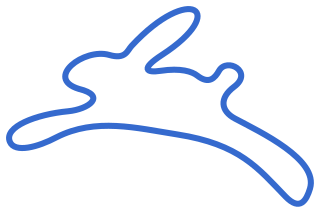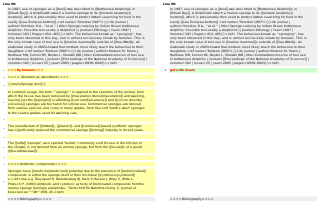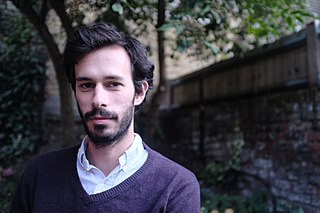
Hyphanet is a peer-to-peer platform for censorship-resistant, anonymous communication. It uses a decentralized distributed data store to keep and deliver information, and has a suite of free software for publishing and communicating on the Web without fear of censorship. Both Freenet and some of its associated tools were originally designed by Ian Clarke, who defined Freenet's goal as providing freedom of speech on the Internet with strong anonymity protection.

In slang, a troll is a person who posts deliberately offensive or provocative messages online or who performs similar behaviors in real life. The methods and motivations of trolls can range from benign to sadistic. These messages can be inflammatory, insincere, digressive, extraneous, or off-topic, and may have the intent of provoking others into displaying emotional responses, or manipulating others' perception, thus acting as a bully or a provocateur. The behavior is typically for the troll's amusement, or to achieve a specific result such as disrupting a rival's online activities or purposefully causing confusion or harm to other people. Trolling behaviors involve tactical aggression to incite emotional responses, which can adversely affect the target's well-being.
An assassination market is a prediction market where any party can place a bet on the date of death of a given individual. This incentivises assassination of the individual, as parties with advanced knowledge of an assassination plot can profit by betting accurately on the date of the death. Because the payoff is for accurately picking the date rather than performing the assassination, it is substantially more difficult to assign criminal liability.

Internet culture is a quasi-underground culture developed and maintained among frequent and active users of the Internet who primarily communicate with one another as members of online communities; that is, a culture whose influence is "mediated by computer screens" and information communication technology, specifically the Internet.
The term black fax refers to a prank fax transmission, consisting of one or more pages entirely filled with a uniform black tone. The sender's intention is generally to use up as much of the recipient's fax ink, toner, or thermal paper as possible, thus costing the recipient money, as well as denying the recipient use of their own machine. This is made easier because fax transmission protocols compress the solid black image very well, so a very short fax call can produce many pages.
The deep web, invisible web, or hidden web are parts of the World Wide Web whose contents are not indexed by standard web search-engine programs. This is in contrast to the "surface web", which is accessible to anyone using the Internet. Computer scientist Michael K. Bergman is credited with inventing the term in 2001 as a search-indexing term.
A darknet or dark net is an overlay network within the Internet that can only be accessed with specific software, configurations, or authorization, and often uses a unique customized communication protocol. Two typical darknet types are social networks, and anonymity proxy networks such as Tor via an anonymized series of connections.

Joseph Daniel Lasica is an American entrepreneur, public speaker and journalist. He is the author of Darknet: Hollywood's War Against the Digital Generation (2005), a book about the copyright wars and the future of media.
A darknet is a network that can only be accessed with specific software, configurations, or authorization.

Amir Taaki is a British-Iranian anarchist revolutionary, hacktivist, and programmer who is known for his leading role in the Bitcoin project, and for pioneering many open source projects. Forbes listed Taaki in their 30 Under 30 listing of 2014. Driven by the political philosophy of the Rojava revolution, Taaki traveled to Syria, served in the YPG military, and worked in Rojava's civil society on various economic projects for a year and a half.

The Hidden Wiki was a dark web MediaWiki wiki operating as a Tor hidden service that could be anonymously edited after registering on the site. The main page served as a directory of links to other .onion sites.
The Raven is involved with web television, Internet radio, and citizen journalism. The Raven claims to have reported on Daytona Beach events via video broadcasts through a Web TV station as far back as 2000.
The dark web is the World Wide Web content that exists on darknets that use the Internet but require specific software, configurations, or authorization to access. Through the dark web, private computer networks can communicate and conduct business anonymously without divulging identifying information, such as a user's location. The dark web forms a small part of the deep web, the part of the web not indexed by web search engines, although sometimes the term deep web is mistakenly used to refer specifically to the dark web.

AlphaBay was a darknet market operating at different times between September 2014 and February 2023. At times, it was both an onion service on the Tor network and an I2P node on I2P. After it was shut down in July 2017 following law enforcement action in the United States, Canada, and Thailand as part of Operation Bayonet, it was relaunched in August 2021 by the self-described co-founder and security administrator DeSnake. The alleged original founder, Alexandre Cazes, a Canadian citizen born on 19 October 1991, was found dead in his cell in Thailand several days after his arrest, with police suspecting suicide.
A darknet market is a commercial website on the dark web that operates via darknets such as Tor and I2P. They function primarily as black markets, selling or brokering transactions involving drugs, cyber-arms, weapons, counterfeit currency, stolen credit card details, forged documents, unlicensed pharmaceuticals, steroids, and other illicit goods as well as the sale of legal products. In December 2014, a study by Gareth Owen from the University of Portsmouth suggested the second most popular sites on Tor were darknet markets.
All Things Vice is a blog that was started in 2012 by Australian author and journalist Eileen Ormsby about news in the dark web. Since her investigations into the Silk Road in 2012, the darknet market led her to blog about various happenings in the dark web and two books, Silk Road (2014) and The Darkest Web (2018).

Jamie Bartlett is a British author and journalist, primarily for The Spectator and The Daily Telegraph. He was a senior fellow at Demos and served as director of the Centre for the Analysis of Social Media at Demos until 2017.
Atlantis was a darknet market founded in March 2013, the third such type of market, concurrent with The Silk Road and Black Market Reloaded. It was the first market to accept Litecoin.
The Meow Wars were an early example of a flame war sent over Usenet which began in 1996 and ended circa 1998. Its participants were known as "Meowers". The war was characterized by posters from one newsgroup "crapflooding", or posting a large volume of nonsense messages, to swamp on-topic communication in other groups. Ultimately, the flame war affected many boards, with Roisin Kiberd writing in Motherboard, a division of Vice, that esoteric Internet vocabulary was created as a result of the Meow Wars.

Carl Jack Miller is an author, speaker and researcher at Demos, a think tank based in London, where he co-founded the Centre for the Analysis of Social Media (CASM) in 2012. As of 2019 Miller is also a visiting scholar and research fellow at King's College, London.









